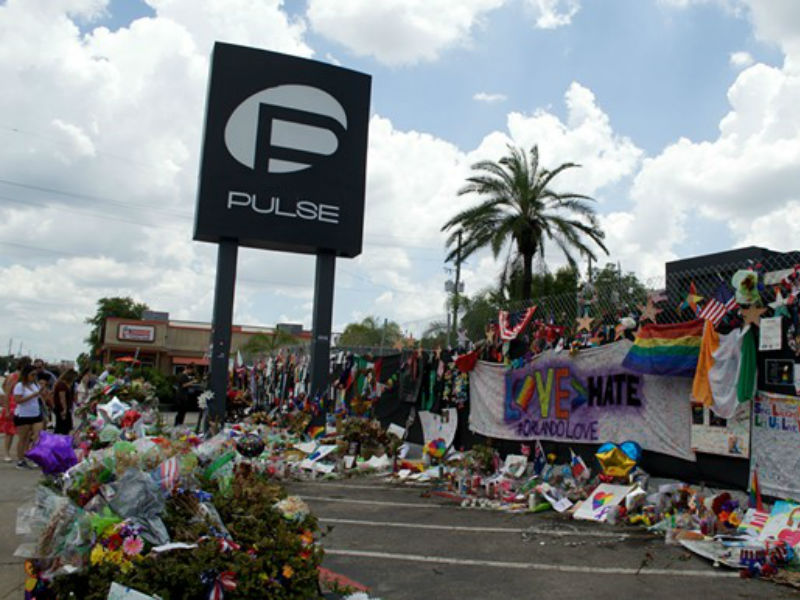
He was a loner. Since Columbine we have heard those words repeated like a grim mantra. It has become an inevitable dimension of our collective experience with mass murder. One forensic psychologist described it as “toxic social isolation.” A poison for the soul, even more common than mental illness in those who kill, the pain of rejection, abuse or shame is a powerful toxin. We all long to solve the inexplicable; find an easy answer to the question, why? What can possibly explain the horrific reality that we now face on a national scale where falling signs or backfiring motorcycles incite mass panic? Isolation, abuse, and personal trauma seem ever present companions in those who do the unthinkable. But there must be more.

What we rarely, if ever, hear in popular culture is consideration of the deep spiritual dimension of human existence and how that impacts one’s actions. Social isolation is no doubt important, but what about the spiritual isolation which is the soil in which social isolation grows? In a secularized society it is taboo to speak of it. But it is basic to human experience. Unless, of course, we are, as the atheist Richard Dawkins inelegantly put it, “just gene machines;” soulless animals blindly careening through the meaningless passage of time. In that case, why object? If there is no meaningful difference between the human being and the being of the fly I swat in my kitchen, why the outrage? Well, we instinctively know otherwise and respond accordingly. “Since the creation of the world,” the Christian Scriptures affirm, God has made himself and his character known “in the things that have been made” (Romans 1:20).
We are not alone. No human being is ultimately a loner. We are creatures and if creatures with immortal souls, then we are made by and for our creator. Some of the most recognized words ever penned are “In the beginning, God…” (Genesis 1:1). The implication of that simple expression is the difference between being a loner and being known. For Dawkins and others, the story begins with, “In the beginning, nothing.” For that school of thought, in Dawkins words, “the whole beauty of the Darwinian explanation for life is that it’s self-sufficient. You start with essentially nothing — you start with something very, very simple — the origin of the Earth.” Really?! The entire earth with its teeming diversity of life, a simple thing that pops into being out of nothing? If you accept that argument, that we begin with the origin of the earth, that leaves us with two options: Everything that is or was or ever will be came from “nothing”, or everything came from the Creator-God. Nothing cannot be a foundation for everything.
This brings us back to those simple, powerful first words in the Bible, “In the beginning, God.” Created beings are not alone, ever. We may be relationally alienated from other people and from God, but they are there. We are not alone, though we may feel so. We know this because the whole of creation shouts it to us. The seventeenth century French mathematician and Philosopher Blaise Pascal observed, “There is a God-shaped vacuum in the heart of each man which cannot be satisfied by any created thing but only by God the Creator, made known through Jesus Christ.”

There are no simple explanations for the horrors that now punctuate our national experience. Created beings are too complex for that. The biblical book of Proverbs says, “The purpose in a man’s heart is like deep water” (Proverbs 20:5). Deep indeed. It is time to acknowledge the depths; to stop placing our faith in band-aid legal or political solutions alone. The only real, permanent solution is to reconsider the implications of eliminating spiritual realities from our public life and discourse. We are inescapably religious beings. We may, in our estrangement from God, be devoted heart, soul, mind and strength to self. We may be devoted to the destruction of those we deem unfit, or to our own personal peace and prosperity. But, there are spiritual dynamics in play which drive our choices and regulate our actions.
Having excised God and spiritual realities from public life, we ought not be surprised when we experience the degenerative effects. C.S. Lewis’ observation his 1943 “The Abolition of Man,” captures it well: “In a sort of ghastly simplicity we remove the organ and demand the function. We make men without chests [hearts] and expect of them virtue and enterprise.”
A person may feel alone, culture may call him a loner, but the inner heart knows, as Psalm 19:1 gloriously proclaims, “The heavens declare the glory of God, and the sky above proclaims his handiwork. Day to day pours out speech, and night to night reveals knowledge.”
We are not alone.
S. Joseph Scott has a Ph.D. in theology and has served in leadership positions in both higher education and religious institutions. He has published in both academic and popular journals and has a special interest in the intersection of faith and culture.








